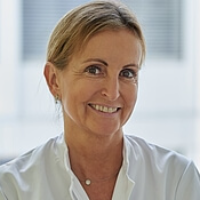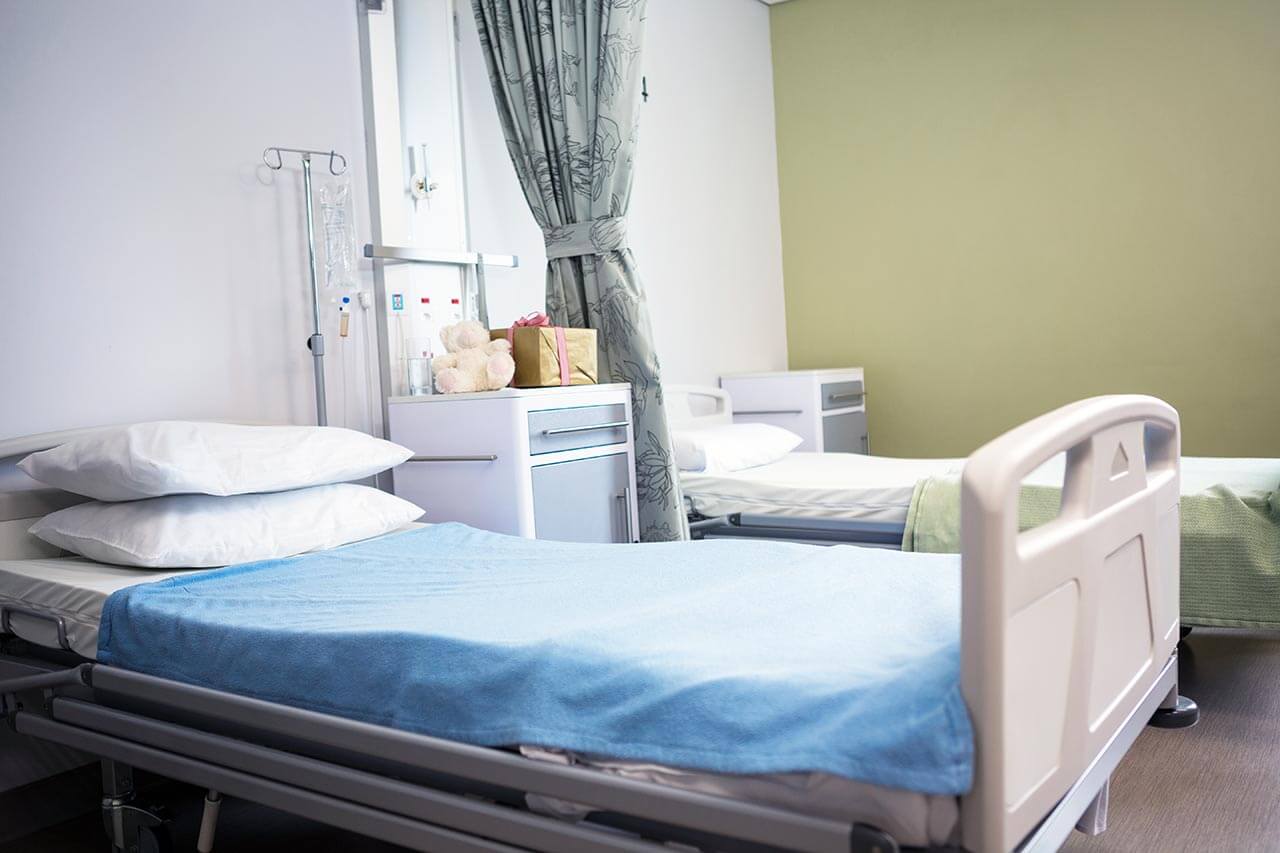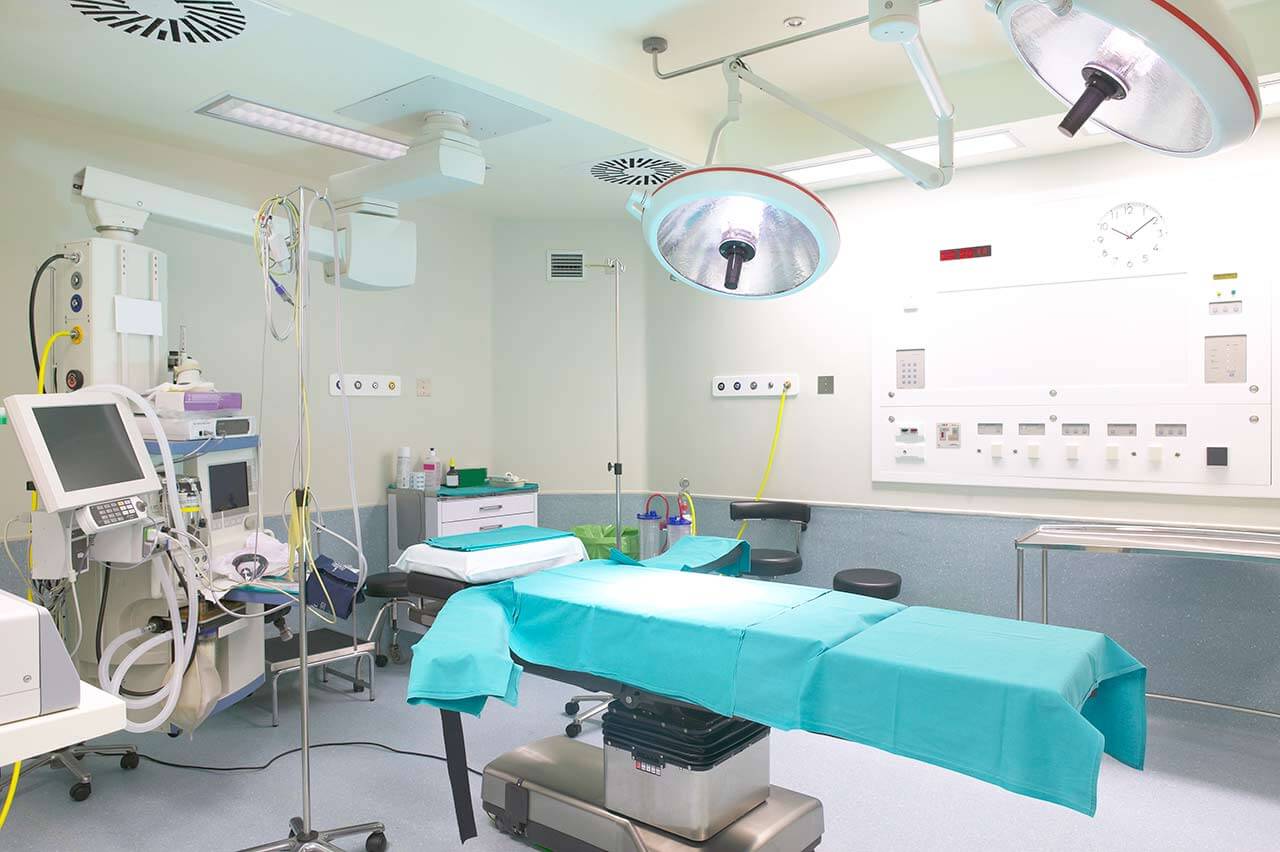
The program includes:
- Initial presentation in the clinic
- clinical history taking
- review of medical records
- physical examination
- laboratory tests:
- complete blood count
- general urine analysis
- biochemical blood test
- inflammation markers (CRP, ESR)
- blood coagulation analysis (aPTT, PT, INR)
- neurological examination
- functional X-ray of the head and neck
- electrophysiology study (if indicated clinically):
- ENMG (electroneuromyography)
- EEG (electroencephalography)
- SEPs (somatosensory evoked potentials)
- VEPs (visually evoked potentials)
- BAEP tests (brainstem auditory evoked potentials)
- CT/MRI scan of the head and neck
(if indicated clinically, additional cost is 650/1200€) - nursing services
- consultation of related specialists
- treatment by chief physician and all leading experts
- explanation of individual treatment plan
Required documents
- Medical records
Service
You may also book:
 BookingHealth Price from:
BookingHealth Price from:
About the department
The Department of Pediatric Neurology at the Children's Hospital Nuremberg offers the widest range of medical services for young patients with pathologies of the nervous system. The department's highly qualified team of neurologists specializes in the treatment of diseases of the brain, spinal cord, and peripheral nervous system. The doctors have deep knowledge and clinical experience in medical care for children with cerebral palsy, epilepsy, dizziness, inflammatory diseases of the nervous system, and congenital anomalies of the brain and spinal cord. The medical facility admits children of all age groups, from premature and newborn infants to adolescents up to 18 years old. The specialists have the necessary diagnostic options for accurate examination of the brain and spinal cord as well as assessment of the child's nervous system functions. CT and MRI in young patients may be performed under anesthesia if required. Each child is provided with a personalized treatment regimen, which may include drug therapy, physiotherapy, therapeutic exercises, manual therapy, massage, electrical stimulation, and other effective methods. The department has a friendly atmosphere and perfectly arranged play areas for children. The department is headed by Dr. med. Almut Hirsch.
The team of the department's pediatric neurologists regularly treats young patients with epilepsy. The pathology is chronic and manifests itself in sudden seizures accompanied by loss of consciousness, movement disorders, and other symptoms. To confirm the diagnosis, the department's doctors carry out comprehensive diagnostics with an assessment of the neurological status, study the child's anamnesis, and perform a number of laboratory and instrumental tests (EEG, CT, MRI, ECG, blood, and urine tests). The specialists also carry out differential diagnostics to exclude conditions with similar symptoms, for example, febrile seizures or convulsions. Once the diagnosis is confirmed, doctors begin to elaborate a treatment regimen, taking into account the specific type of epilepsy, the duration and severity of the disease, the frequency and intensity of epileptic seizures, the child's age, and their general health condition. The primary method of combating epilepsy is drug therapy with anticonvulsants. As a rule, a single drug is selected, but sometimes a combination of several drugs may be used as well. Both the child and parents should be prepared for years of drug intake and strict adherence to the neurologist's recommendations. Balanced nutrition, normalization of sleep, and appropriate physical and mental activities play an important role in the treatment process.
In cooperation with pediatric orthopedists and experienced physiotherapists, the department's specialists treat cerebral palsy in children. Pathology is a complex of specific motor disorders, up to complete immobility, that develop due to damage to the central nervous system in the process of intrauterine development, during childbirth, or in the first years of the child's life. A child with cerebral palsy quite often has speech and mental disorders and an intellectual disability. During the diagnostics, the neurologist carefully analyzes the complaints, studies anamnesis, inquires about the course of pregnancy and childbirth, and the peculiarities of the development of the baby in the first months of life. When conducting the examination, the specialist also pays due attention to the assessment of muscle tone and the presence or absence of pathological reactions. The department's doctors obligatorily perform electroencephalography, electromyography, electroneuromyography, neurosonography, and magnetic resonance imaging of the brain. As for the treatment, cerebral palsy is still incurable, so the goal of therapy is to alleviate symptoms, prevent complications, and adapt the child to life in society. The department's specialists most often resort to such methods as symptomatic drug therapy, physiotherapy, therapeutic exercises, massage, and psychotherapy.
An important role in clinical practice is also given to medical care for children with inflammatory diseases of the nervous system, such as encephalitis, meningitis, myelitis, multiple sclerosis, and Guillain-Barre syndrome. Young patients with these conditions receive anti-inflammatory drug therapy and symptomatic treatment. The timely initiation of therapeutic measures is crucial for a successful outcome because delays may lead to irreversible pathological changes or even fatal consequences.
The main areas of the department's specialization include:
- Diagnostics and treatment of epilepsy
- Diagnostics and treatment of cerebral palsy
- Diagnostics and treatment of inflammatory diseases of the nervous system: encephalitis, meningitis, myelitis, multiple sclerosis, and Guillain-Barre syndrome
- Diagnostics and treatment of spina bifida and other congenital malformations of the nervous system
- Diagnostics and treatment of congenital genetic diseases affecting the nervous system
- Diagnostics and treatment of dizziness
- Diagnostics and treatment of chronic headaches
- Diagnostics and treatment of neuromuscular and chronic neurodegenerative diseases
- Diagnostics and treatment of attention deficit hyperactivity disorder
- Diagnostics and treatment of nervous tics
- Diagnostics and treatment of autism spectrum disorders
- Diagnostics and treatment of other neurological diseases in children
Photo of the doctor: (c) Klinik Hallerwiese-Cnopfsche Kinderklinik
About hospital
The Children's Hospital Nuremberg is a maximum care health facility that focuses on providing effective care for young patients in a pleasant and comfortable environment. The hospital admits children and adolescents up to 18 years old. Medical care can be provided on an inpatient or outpatient basis. Highly qualified doctors and experienced nursing staff work with children. The specialists get along well with young patients. The goal of the hospital's medical team is to provide patients with modern and most sparing treatment. It is also important for doctors to eliminate pain and discomfort during the therapeutic process. The key to successful clinical practice in the medical facility is the close cooperation of doctors, their high competence and vast experience, as well as the hospital's state-of-the-art medical equipment and modern infrastructure.
The hospital has more than ten specialized departments. Priority areas include pediatric otolaryngology, surgery, urology, orthopedics, endocrinology, oncology, hematology, pulmonology, and neuropediatrics. Patients are offered innovative treatments that have proven themselves at the international level. Surgical treatment involves the wide use of sparing, minimally invasive techniques, after which children recover quickly and experience virtually no pain.
The hospital admits more than 15,000 young patients every year, most of whom are treated on an outpatient basis without mandatory hospitalization. Each child receives personalized care. The treatment is accurately planned, and the doctor tells the parents about its specifics. An important aspect is a friendly and attentive attitude towards children, as well as understanding their fears and needs.
The Children's Hospital Nuremberg has repeatedly received the "Ausgezeichnet. FÜR KINDER" quality certificate. This certification is granted to the best children's hospitals in Germany, which regularly demonstrate high treatment success rates.
Photo: (с) depositphotos
Accommodation in hospital
Patients rooms
The patients of the Children's Hospital Nuremberg live in comfortable rooms designed in a child-friendly style. The furnishing of a patient room includes a comfortable automatically adjustable bed, a bedside table, a table, chairs, and a wardrobe. The hospital has a Rooming-in system, thanks to which parents can stay in the same room with their child. To ensure interesting and pleasant leisure time for children, the hospital has excellent playrooms, where every child can find something to do and toys to their liking.
Meals and Menus
The patients at the hospital are offered three tasty and balanced meals a day: breakfast, lunch, and dinner. With appropriate clinical indications, an individual menu may be developed for the child.
Further details
Standard rooms include:




